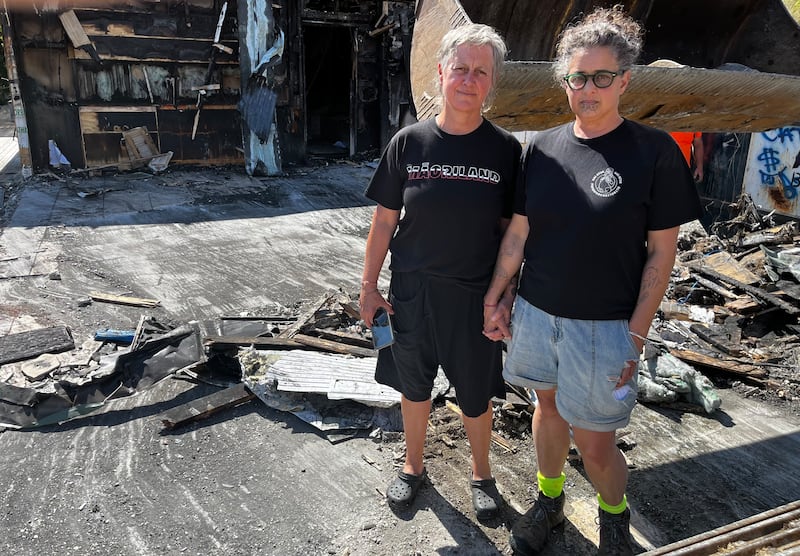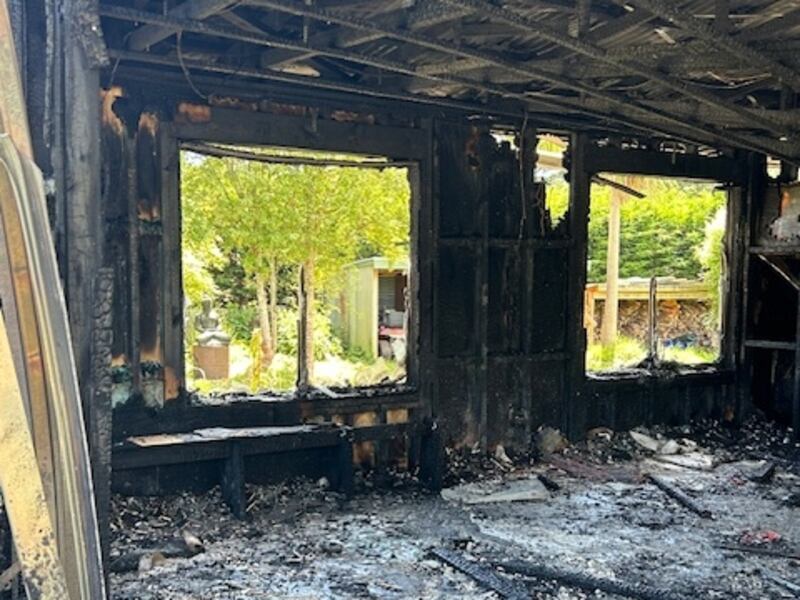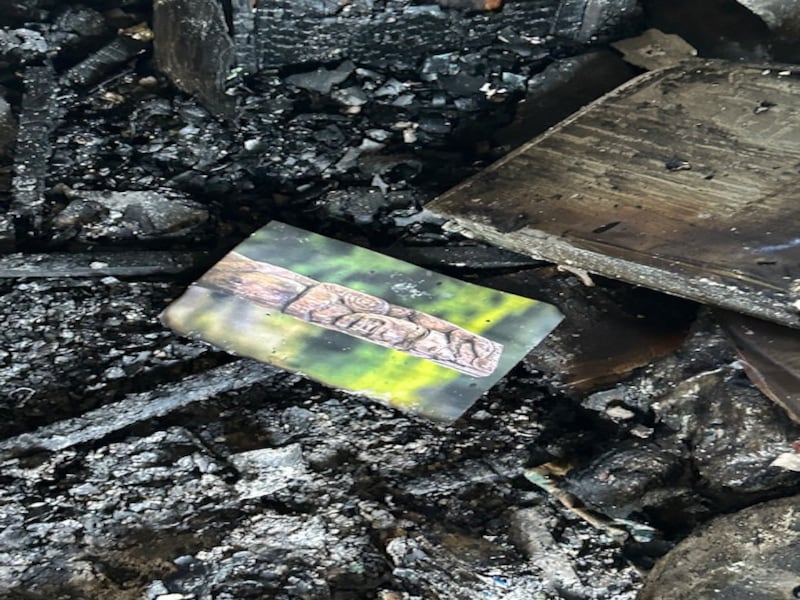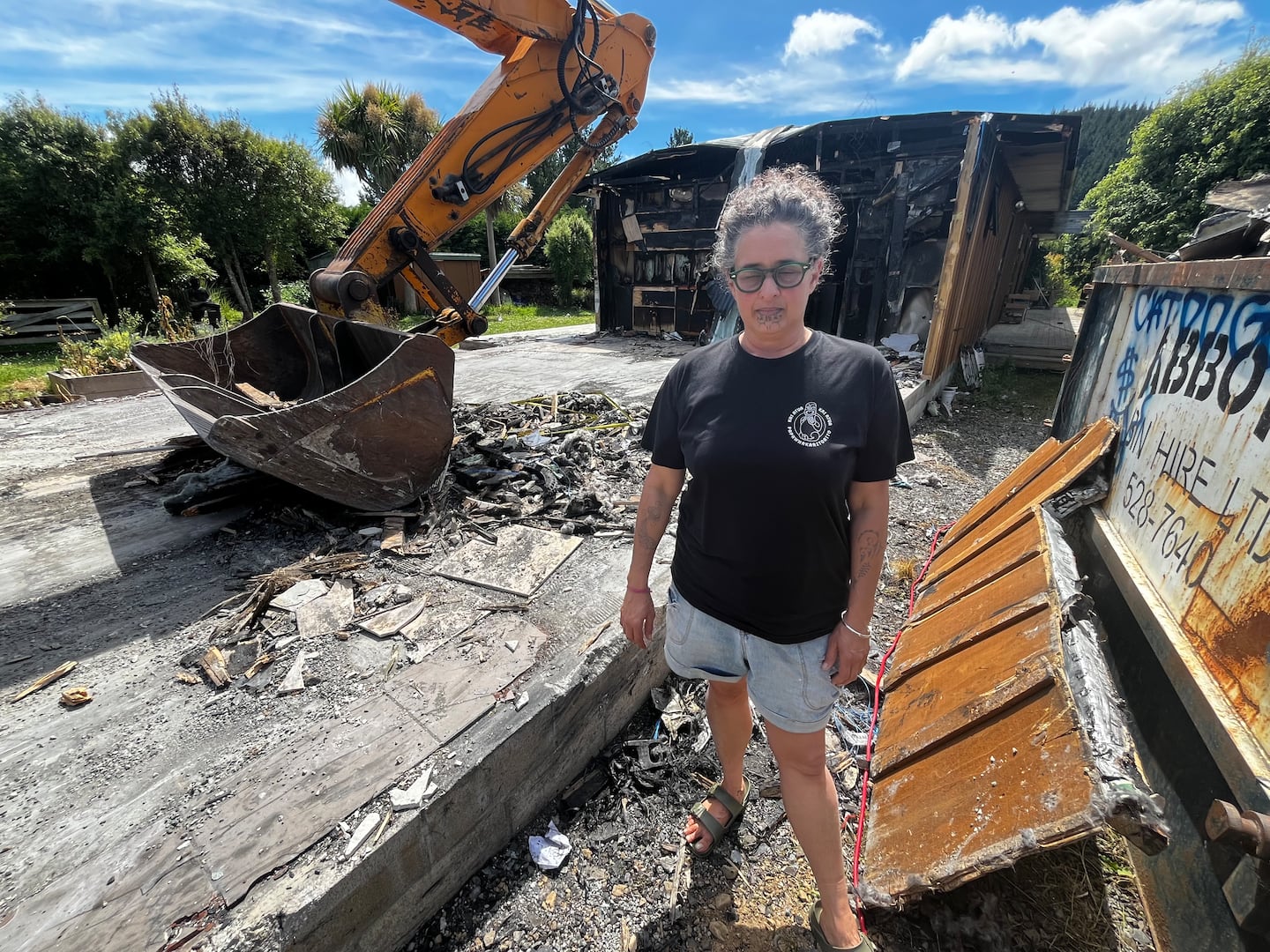Owners of a Wellington region farm dedicated to fostering indigenous sustainable practises are devastated after their whare full of precious taonga was destroyed by fire last week.
Farm owner and Papawhakaritorito Charitable Trust founder Dr Jessica Hutchings woke up at 5.20am on Monday, November 25 to her home full of smoke.
“I got up to investigate and it was just thicker and thicker. I walked through down the house to see what was happening and then there were flames down the end of the house… So by 5.25am the house was fully ablaze.”

Hutchings is grateful to be alive but half of the Kaitoke farmhouse was destroyed as well as her and her wife Jo’s possessions.
Precious taonga used to carry out their mahi on behalf of the trust were also destroyed in the fire, including heritage seeds, the water pump that supplies water to their maara (garden) and merchandise that helps fund the trust’s initiatives.
The Papawhakaritorito farm is dedicated to elevating Indigenous seed, soil, and food sovereignty through education, research, and practices that decolonise the current food system.
The trust offers Indigenous-led courses at the farm founded on the principles of Hua Parakore (Māori organics), teaching practical growing techniques and how to cultivate mauri-rich (life-giving) food for families and communities.
“All of our heritage seed collection, all of our possessions, all of the merch for the Trust, our offices were completely destroyed. We’ve lost all of our living room and most of the kitchen, all of our artwork, pretty much everything.”

Destroyed seeds from taonga collection
The heritage seeds that were lost include hue, kūmara, varieties of pūhā, rākau Māori such as kamokamo and rīwai (potato).
“The devastation for us about losing these seeds is these seeds are the representation of our four years of work since we’ve been established at Papawhakaritorito to rebuild or reimagine our indigenous seed collections.”
Hutchings says the heritage seeds are important because they “hold our diversity as indigenous peoples around our food systems”.
“Our work is around food sovereignty, which obviously starts in the soil and starts in seed. And we were really starting to build a Māori heritage seed collection so that it’s in the hands of Māori, not others, not Pākeha,,” she says.
“When indigenous people save seed or share seed we attach our pūrakau, our whakapapa stories to those seeds. And so it’s not just the physical object of the seed that you’re passing along and sharing, but you are sharing it to keep the stories and the whakapapa, kōrero, the pūrakau alive.”
‘Gut-wrenching’ loss of whare manaaki
Hutchings says the most “gut-wrenching” loss was their whare manaaki, the room where they host manuhiri to hold wānanga about kai, seed and soil sovereignty.
“It’s also a space that I teach community yoga. So I’ve been a yoga student for about 25 years and teaching for about 10 years and just so lucky to have a space where you can gather 12 people into a room and do yoga. It was a real offering to the community.”
Hutchings built the home in 2007 as a single mother, so it has held a special place in her heart.
“Single parenting at the time with my young son - we put lots of love into that and just when you lose your house, you lose your home and it affects the whole family. You lose a notion of what home is and all those memories and things.”

The rebuild of the farmhouse
Hutchings and her whānau are planning to rebuild the house and have received donations from the community to support them via a givealittle page.
The funds will go towards rebuilding the whare manaaki teaching space; replacing seeds to replant the garden; buying a new water pump to restore the garden’s water supply, and supporting the shop merchandise.
Since the property is rural and receives no piped services from the council, the whānau will need to build a new compostable toilet.
“We are starting from the ground up because we have no services from any councils that run to the farm… We need a space where we can gather so that the community can have a place to gather with us while we rebuild.”
How the fire started
Hutchings said the fire started in a rubbish bin in her laundry.
“I had been oiling a table outside on the back deck on the weekend with linseed oil and I put the cloth in the internal rubbish bin in the laundry and it had internally combusted, like smouldered overnight.”
According to the Fire and Emergency New Zealand service, linseed oil can spontaneously combust, meaning it can catch fire without an external flame or spark. This is because linseed oil reacts with oxygen in the air through a chemical process called auto-oxidation, which generates heat.
The service advises people to store oily rags in a metal container with a tight-fitting lid, keep the container away from other flammable items and spread out oily rags to dry in a well-ventilated area.



